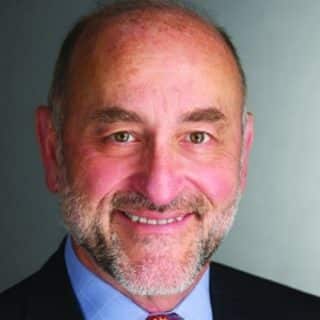TRUMP WAS USED TO FOIL BILL CLINTON'S RETURN TO THE WHITE IN 2016.
Relive the Trump's stunning win that left Hillary shell shocked in 2016.
There's a simple reason for Clinton's shocking loss to Trump
There are many things to blame for Clinton's loss, some obviously true (she is an awkward campaigner), some convenient but less true (Americans not being ready for a female president, which is nonsense, or an aversion to political dynasties, which have happened before).
But the very inconvenient truth that must be absorbed, by the technocratic Democrats of the Obama years and by the apparent plurality of voters who supported Secretary Clinton, is that the Obama administration did not deliver on its promises of hope and change, and broke the trust of many of those (enough, at least, to elect Donald Trump) who were counting on a sharp departure from business as usual following the Great Recession.
It is tempting to chalk up the Trump win to the nativist racism of opioid-addled, poor white males. But that would be a mistake, especially given the actual demographics of Trump’s electoral coalition. Trump correctly identified the broad swath of Americans feeling economically left behind and insecure, and his constituents are working class and middle class (and even some upper middle class) more than they are the poor.
Trump's voters have been economically disenfranchised, betrayed by Wall Street and other moneyed interests, and ignored (or worse yet, pandered to) by their government for decades.
Don't get me wrong: The Clintons certainly were responsible for making the bed they were ultimately tossed out of. The petit-scandals and tone-deafness of both Clintons mounted to the point of making it difficult to chalk up their problems to a "vast right-wing conspiracy." With an electorate furious with banking interests, what brand of hubris defends taking piles of money for speeches to Goldman Sachs?
No, the legacy of this election — perhaps, sadly, to become a part of the legacy of President Barack Obama's administration as history is written — is that so many of our families, our homeowners, our middle-aged and aging workers and parents, have been harmed, perhaps irrevocably, by declining real disposable incomes, deteriorating or vanished wealth, no prospects for a reasonably comfortable retirement, and healthcare and education costs that have eroded the little they were able to preserve.
And after eight years of the Obama presidency, despite all the faith they placed in change in 2008 and, somewhat less convincingly in 2012, they wondered:
- Why was the administration crowing about job creation when the majority of the jobs created were low wage/low hour full-time positions and gig jobs that were supremely inadequate replacements for the steady, better-paying jobs that preceded them?
- Why did the administration do so little to relieve homeowners who lost so much during the crisis and then pat themselves on the back for the cheap-debt-fueled growth in home prices that was concentrated on the coasts and did little for the balance sheets of households in places like Michigan and Wisconsin, Iowa, and Ohio?
- And why, in God's name, was that administration touting the benefits of global trade agreements that were negotiated in secret and so patently devoid of benefits to US workers, while these same voters observed that everything they were buying at the store was putting people to work in China, Vietnam, Korea, and Mexico?
Finally — notwithstanding the insanity of the Republican obstruction of a truly responsible national healthcare program for all (which is supported by 58% of the electorate) — instead of the thoroughbred health-insurance policy campaigned for by President Obama, the nation got a two-humped camel, in the form of the Affordable Care Act, that is now limping at best. The chief benefit of ACA, insuring the poor and the young, were not felt by Trump's electorate; all they see are rising insurance premiums (for employer-provided as well as Obamacare-provided healthcare insurance).
Relive the Biden's stunning win that left Trump more shell shocked than Hillary. Thanks Trump. We don't need you anymore.
With Nov. 3 racing toward us, it can be tempting to see the 2020 election as a done deal. For months, Joe Biden has consistently and convincingly led Donald Trump in polls. Swing states in the industrial Midwest and Sun Belt appear to be heading Biden’s way, and if you trust the polls, it’s not a leap to imagine him winning 330+ electoral votes.
But what if you shouldn’t trust the polls?
In 2016, months of national polls confidently showed Hillary Clinton ahead, and set many Americans up for a shock on Election Night, when the Electoral College tilted decisively in Trump’s favor. Two pollsters who weren’t blindsided by this are Arie Kapteyn and Robert Cahaly. Kapteyn, a Dutch economist who leads the USC’s Dornsife Center for Economic and Social Research, oversaw the USC/Los Angeles Times poll that gave Trump a 3-point lead heading into election day—which, Kapteyn notes, was wrong: Clinton won the popular vote by 2 points. Cahaly, a Republican pollster with the Trafalgar Group, had preelection surveys that showed Trump nudging out Clinton in Pennsylvania, Michigan, Wisconsin, Florida and North Carolina—all of which he won.
This year, both men believe that polls could again be undercounting Trump’s support. The reason is “shy” Trump voters—people reluctant to share their opinions for fear of being judged. Though the “shy voter” idea is thrown around a lot by both Trump supporters and Democratic skeptics, Kapteyn and Cahaly have specific insights into why, and how, Trump support might be going undetected.
For Cahaly, those votes are likely to make the difference again. “There’s a lot of hidden Trump votes out there,” he says. “Will Biden win the popular vote? Probably. I’m not even debating that. But I think Trump is likely to have an Electoral College victory.”
As an illustration, Kapteyn described what his team at USC sees in its polls. Beyond simply asking voters whether they support Biden or Trump, USC asks a “social-circle” question—“Who do you think your friends and neighbors will vote for?”—which some researchers believe makes it easier for people to share their true opinions without fear of being judged for their views.











